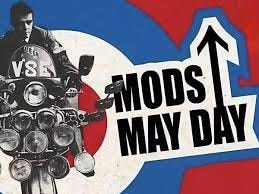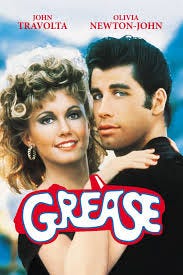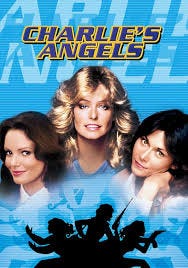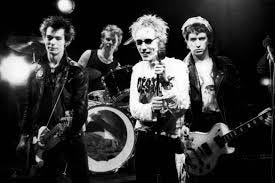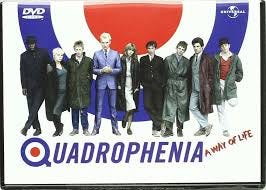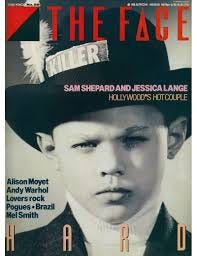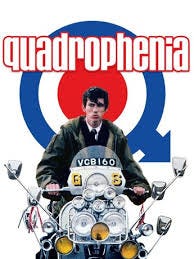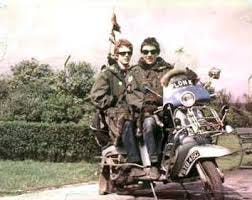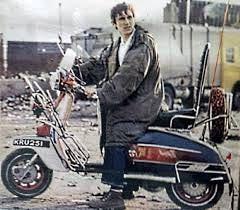We are back to my biography this week - after two years I left Garh Hill, the worst school in Europe at the time and moved to Winnersh near Reading. I joined the traditional boys ‘ school Forest. It was Year 9 and I was thirteen - adolescence was here!
This earlier Substack connects to this one. So it might be good to read this first if you haven’t been a long-time subscriber.
Blue Remembered Hills
There is no philosophy and mythology this week, readers, but I am returning to my autobiography, which I have been interspersing with my posts. We are now in the 1980s in England, and life is changing. I hope you enjoy it.
In September, my education at the Forest School began in earnest. We also had a new set of subject teachers who were quite bizarre. Forest had once been a Grammar School, selective and elite, but since the change to a comprehensive, it now accepted pupils of all abilities and sometimes none.
Those old Grammar School teachers were completely out of their depth in this new, comprehensive world. Ray Winch, ‘Slob’ the Latin Master, Donald Stamp, who taught English and fell asleep in our lesson reading ‘The Wind in the Willows’, and Doctor Reece with his Humber car. These were the older generation.
They really couldn’t cope with us.
I am going to write about Dr Ramond Winch first. In our more enlightened times, he would probably be called neurodiverse and on the autistic spectrum. He was always scruffy and his hair uncombed and lank. When he taught us, it was more of a lecture. He was eccentric and highly intelligent. I remember one occasion when ‘Slob’ walked by the classroom window and Ray said, in his fluting and high-pitched voice, ‘Who’s that?’
And in a deep voice, we all chanted back, ‘Slob.’
In reply, Ray said, ‘I don’t know him.’
And that was that – less of an anecdote and more of a weird happening.
In my English class, there was a boy called Chris ‘Wiggy’ Blair who suffered from Alopecia and wore a terrible nylon wig. The indignity of the wig didn’t help, but in truth, he was a horrible person and could be vicious physically and verbally to others. I recall him kicking others with his steel-capped shoes. Dr Winch decided to ruffle his hair, and Chris’s wig fell off. Pandemonium broke out, the wig was snatched up, and Chris exited the classroom crying! Dr Winch’s response, ‘I didn’t know he wore a wig.’
Cruel, crazy and hilarious, this was life in the 1980s.
In Wokingham, there was a Friday Rock Club out the back of the library, and Ray was said to frequent this in the evening, headbanging with the older pupils. The Sixth Formers, who perhaps appreciated his foibles and intelligence more than we did. The rumour was that he was eventually sacked for stealing a bicycle from Winnersh Cycle Hire.
With the resources of the internet, I couldn’t resist searching online for Ray Winch today, some forty-five years later. After ‘retiring’, he moved to Oxford and retained his interest in Philosophy and theology; it seems that he knew when younger, AJ Ayer, the British Empiricist philosopher, who appeared on TV. Ray retained an interest in the Catholic religion. When he died in 2003, he left £250,000 to Magdalen College School:
Deputy headteacher Richard Cairns, (who interviewed me once for the Headship of Brighton College Prep) said: "It's a very generous bequest. Dr Winch had no connection with the school and was someone of modest means. "It's one thing to get a bequest from a millionaire, but this is remarkable. "Dr Winch taught at grammar schools in Hertfordshire and Berkshire before retiring to live in Oxford. Mr Gaddes said Dr Winch had been impressed by the unpretentiousness of Magdalen College School pupils.
I also found this online about him:
I, too, was taught English by Ray at Forest School in the 1970s and knew him for the rest of his life (finding his body, in his gloriously untidy room, surrounded by books, on October 16, 2000).
He was immensely curious about life in all its aspects, asking questions that could be hugely infuriating as they challenged even the most basic assumptions one might have made. But he made me and my fellow pupils think for ourselves and question accepted wisdom and authority. For that, I shall be forever grateful.
In a school with a strong streak of anti-intellectualism, he showed it was possible to revolt against the authorities yet relish the intellectual life. How the school hierarchy must have hated the fact that Ray’s pupils frequently achieved top grades in their exams despite failing to toe the line!
Perhaps I should list some of Ray’s great enthusiasms, for those who want a clearer picture of the man: Shakespeare (he helped stage several plays at the school, and particularly enjoyed taking on the role of Shylock); punk rock (bizarrely, he organised a school Shakespeare Society trip to see the Jam at Bracknell Sports Centre); beer; cider; chemistry – he combined these last two interests when employed as a master at Chard School, setting up a still in the school attic to make illegal Calvados; caving; long-distance running; food (Ray once discovered a badger’s body while cycling to a pot-hole with a party of boys; they were hungry so he decided to roast half of the beast over a fire. The meat of the hind quarters, he told me, was delicious; hence, he buried the rest of the animal to enjoy on the return trip. With great sadness, he reported that when unearthed a few days later, the forequarters provided poor eating. The lesson? Always choose to roast the rear end of a badger.)
I renewed my friendship with Ray towards the end of his life, when he was living near to me in Oxford. I had stayed at 41 Essex Street while completing my undergraduate dissertation in the 1980s (and remember the late nights of arguing and the discovery of slug trails over my sleeping bag in the mornings). The house was little changed 15 years later: an invigorating antidote to the neat conformism of the Reading suburb in which I had grown up. Ray’s one attempt at tidying the place by employing a cleaner came to nought. After inspecting the premises, the cleaner thrust a note through Ray’s front door stating: ‘I do not deal with FILTH!’
This is just mad, but Ray did not disappoint as a character then or now in death.
Don Stamp also taught us English; he had a goatee beard. His big passion was archery, and he ran the school club. He also published books on the subject and was an International Judge. There is some cursory information about him on the Reading Archery website. The Archery at school took place on the school field, and if memory serves me correctly, in the summer, it was a crazy panorama of activity with arrows flying toward targets, footballs being kicked about, and cricket being played.
Then, one boy was shot with an arrow, and the archery stopped.
Health and Safety were not the same in those days.
Don disappeared.
‘Taff’ Philips was Head of Religious Studies and always wore white gloves, the sort that the officials wore on snooker programmes on television when they placed the balls. He was a curious character who looked like the cross between a mortician and a corpse. I recall the lesson where he stroked Tony Lalee’s hair.
Just weird.
These were older men who were disconnected from us; they were part of an older system that was gradually being dismantled and emotionally eroded. They were men from the 1940s and 50s, born before my parents. I am sure they thrived in a selective Grammar School system, but the new comprehensive approach was a challenge to both their pedagogy and their mindset.
Music-led led youth-cults proliferated throughout my time at the school. When I joined, Ivan Longland and Glyn Durstan were wearing their hair in quiffs; the film Grease had come out in 1978, starring John Travolta and Olivia Newton-John.
This highly stylised film and its music had immediately entered our consciousness. It is a coming-of-age story and has some excellent moments, not least Newton-John’s transformation from a wholesome girl into a sexy vamp in the final scene where she turns the tables on Travolta whilst singing the song, ‘You’re the one that I want.’ Impossibly pretty everyone was in love with her.
Sexuality was a curious thing in the late 1970s; in 1976, the first episode of Charlie’s Angels was aired. I never cared for Farrah Fawcett Majors – too much hair and too many teeth. But I could see the beauty and attraction of these women. They had glamour that the women I knew did not possess.
Television was in real time in those days; if you missed it, you didn’t see it. There were staples that everyone watched, like ‘Opportunity Knocks’ and ‘The Generation Games’. Homosexuality was present with a series of camp men like Larry Grayson and John Inman, acceptable because they were funny and the butt of jokes. Non-threatening and in plain sight.
The Teddy-Boy vibe presented by Grease did not attract me, and the music did not resonate; it looked back to rock and roll but was somehow a less dangerous and anodyne version. I always had a soft spot for Elvis, but that’s where the interest ended. Indeed, I loved the film ‘King Creole’.
The other musical explosion at this time was punk, with the appearance of The Sex Pistols, led by Johnny Rotten and soon to star Sid Vicious. This was a counter-culture movement of energy and homemade rebellion that cleared the decks on what had gone before.
Suddenly, anyone could form a band. Looking back now, these new bands brought a fresh impetus to the British scene, and they all offered something different.
My overall impression was energy and a certain danger.
My move to Forest also precipitated a hairstyle change, and I was now sporting a centre parting. The bowl cut was history.
There were two proper punks at school, Nick Macey, who had all the correct gear, including a red Harrington Jacket and tartan bondage trousers. He was a few years older than the rest of us. Nick had both attitude and intelligence. Occasionally, he would turn up at school with a black eye. In my year, there was Mark Brinley, with his spiky hair.
Then it was 1979, and the film ‘Quadrophenia’ came out.
Somehow, I picked up on this early and read an article on the film in a trendy magazine called The Face. It was good to be ahead of the curve. The film had an all-star cast of young actors with Phil Daniels, Leslie Ash, Toyah Wilcox, Sting (from The Police) and Phil Davis.
This was a revival of the Mod Youth cult from the 1960s. Based on a concept album from the band ‘The Who’, it charts the life of young Jimmy and his involvement as a mod and the legendary battles fought with Rockers at seaside resorts like Brighton on the Bank Holidays.
Directed by Franc Roddam, it portrays the life of Jimmy Cooper (Daniels), a troubled young Mod in 1960s London, and his struggle to find meaning and identity in a tumultuous period. The film explores themes of youth rebellion, subculture conflict, alienation, and the search for selfhood.
Jimmy (Daniels), a working-class teenager, is dissatisfied with his dull job as a mailroom clerk and finds solace in the vibrant Mod lifestyle. Mods were a youth subculture defined by sharp fashion, love for scooters, and a passion for soul, R&B, and rock music. Jimmy spends his time partying with friends, taking amphetamines, and trying to impress Steph (Leslie Ash), a girl he admires. His life revolves around his group of Mod friends, and their shared disdain for authority and mainstream society reinforces his identity.
Tensions arose as Mods regularly clashed with the Rockers, another subculture characterised by their leather jackets, motorcycles, and rock-and-roll attitude. A bank holiday weekend in Brighton brings these tensions to a head. Jimmy and his friends join a large Mod gathering, resulting in violent street battles between Mods and Rockers. During the chaos, Jimmy feels elated and empowered by the collective rebellion and catches a brief, intimate moment with Steph. However, his euphoria is short-lived as the group is arrested, and his life begins to unravel.
Jimmy’s return to London marks the beginning of his disillusionment. At home, he faces conflicts with his parents, who disapprove of his lifestyle. At work, he is chastised for his attitude and ultimately quits. Steph, who seemed interested during their encounter in Brighton, dismisses him when they return to their everyday lives. Jimmy’s frustrations grow as he realises that the Mod identity, which he once embraced, offers no escape from his problems. This identity had style and glamour, and an emotional release. His friends and idols, including a charismatic Ace Face (played by Sting), fail to live up to his idealised image. Jimmy discovers Ace Face works as a lowly bellboy at a hotel, shattering his romanticised view of the Mod lifestyle.
Disillusioned and aimless, Jimmy steals Ace Face’s scooter and returns to Brighton, where he reflects on his discontent and the hollowness of his identity. The film concludes ambiguously, with Jimmy riding the scooter to the edge of a cliff. In the final moments, the scooter is seen crashing to the rocks below, but it is left unclear whether Jimmy has also jumped or if he has walked away from the wreckage. It is a brilliant ending, and all these youth cults have this flirtation with death and self-annihilation, fine as a self-transcendent metaphor but not as an enacted reality.
Mods traditionally wore smart mohair suits, slim ties and green Parker scooter coats with targets or Union Jacks on the back. With a combination of imagination and an explosion of hormones, I knew this was for me, something I could belong to. Never a fan of ‘The Who’, it was ‘The Jam’ who caught my attention. Mark Brindley said they were not ‘punk’ enough for him, so I bought his single of ‘Strange Town’ and played it to death on the turntable of my record player in my room.
The big event for the week, music-wise, was Top of the Pops on a Thursday evening; this was massive for bands, an appearance on TOTP guaranteed record sales. I would watch this with my parents, who would complain about the music. I can remember stand-out performances that seemed avant-garde at the time but now seem like part of music history: Marc Bolan, Kate Bush with ‘Wuthering Heights’, The Stranglers, Squeeze and The Clash. A few years earlier, there had been a new wave of music from the US; the most memorable of these was the band Blondie. Few of us could resist Debbie Harry, tiny, blonde, sexy and gorgeous and full of attitude. She was completely beguiling. Blondie produced a string of amazing hits. Songs stay with you, producing a soundtrack to your life: “Up the Junction, Rock the Kasbah, Golden Brown, Eton Rifles,’ and “ Sunday Girl.
‘Quadrophenia’ came out on a Saturday. On Monday at school, everything changed.
Everyone was wearing their school tie in the slim mod style; most of us were wearing Jam Shoes, and some had Parker's. I was sporting a Jam badge on my blazer. It was the first time I had witnessed this group mentality; suddenly, we had a look and a tribe, and at break time, we all paraded together around the school, shouting, ‘We are the Mods!’. It was surreal.
I went to Reading with my mum on Saturday, and down near the station, I bought my Parker and a Target, Sta-press trousers and a tonic tie. I was a chubby mod, more Oliver Hardy than Paul Weller, but it made me feel that I belonged. My Mod mates at this point were the incredibly vain Simon Pateman and smiley Mike Smith. Dad had bought a table tennis table for the garage, and my new mates used to come around to play with me. Occasionally, a girl would join us. New Mod groups appeared, like the Merton Parkers.
Thanks,
David
More next week.


